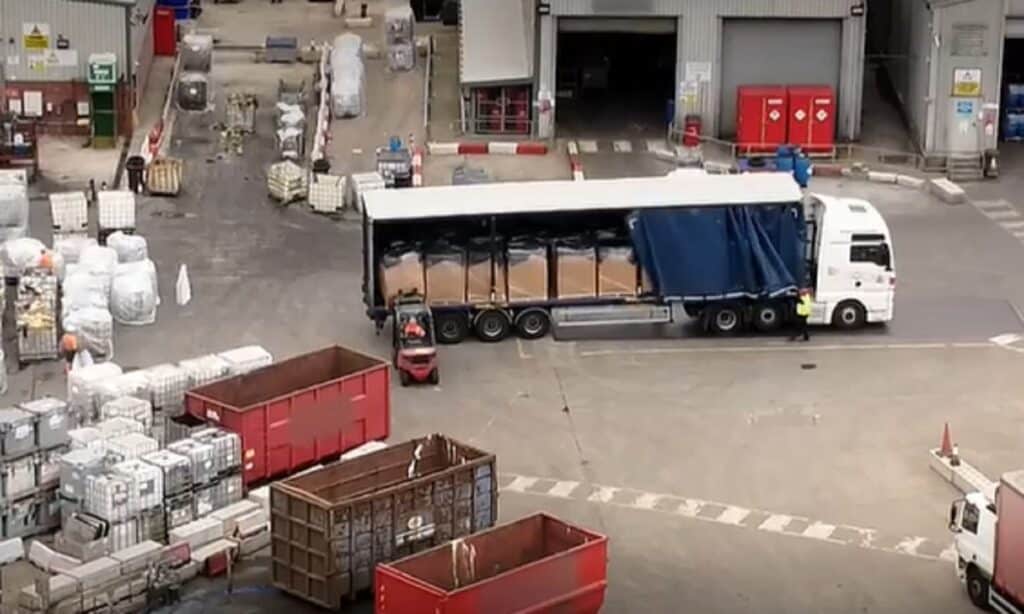
By Cassandra FairbanksAmazon is facing scrutiny after being busted destroying millions of unsold, often brand new, goods every year.
This incredible amount of waste is from just one of the 24 fulfilment centers that the company operates in the UK.
A shocking investigation from ITV News uncovered the company's bizarre practice, including a leaked document from inside the Dunfermline warehouse showing more than 124,000 items marked 'destroy' — and just 28,000 items during the same period that were labelled 'donate'. "Undercover filming from inside Amazon's Dunfermline warehouse reveals the sheer scale of the waste: Smart TVs, laptops, drones, hairdryers, top of the range headphones, computer drives, books galore, thousands of sealed face masks – all sorted into boxes marked 'destroy,'" the report explains.
A former employee told the outlet, "from a Friday to a Friday our target was to generally destroy 130,000 items a week."
"I used to gasp. There's no rhyme or reason to what gets destroyed: Dyson fans, Hoovers, the occasional MacBook and iPad; the other day, 20,000 Covid (face) masks still in their wrappers," they said. "Overall, 50 percent of all items are unopened and still in their shrink wrap. The other half are returns and in good condition. Staff have just become numb to what they are being asked to do.”
When vendors opt to have their items stored and shipped by Amazon, they are charged a fee for the storage. If an item doesn't sell, it eventually becomes unprofitable to continue paying for the storage, and the seller will often choose to dispose of it.
Amazon’s UK boss John Boumphrey told ITV News, prior to learning about how much they had uncovered with their investigation, that only a "extremely small" amount of goods are destroyed.“We are working towards a goal of zero product disposal and our priority is to resell, donate to charitable organisations or recycle any unsold products. No items are sent to landfill in the UK. As a last resort, we will send items to energy recovery, but we're working hard to drive the number of times this happens down to zero,” the company said in a statement.
Contrary to Amazon's claim, the investigation tracked large amounts of items to a landfill.
Greenpeace and other environmental groups are now calling for this practice to stop.
"Stuff that’s not even single use but not being used at all, straight off the production line and into the bin. As long as Amazon’s business model relies on this kind of disposal culture, things are only going to get worse. The government must step in and bring in legislation immediately,” Greenpeace's Sam Chetan Welsh told ITV News.
For corrections, please email [email protected]
